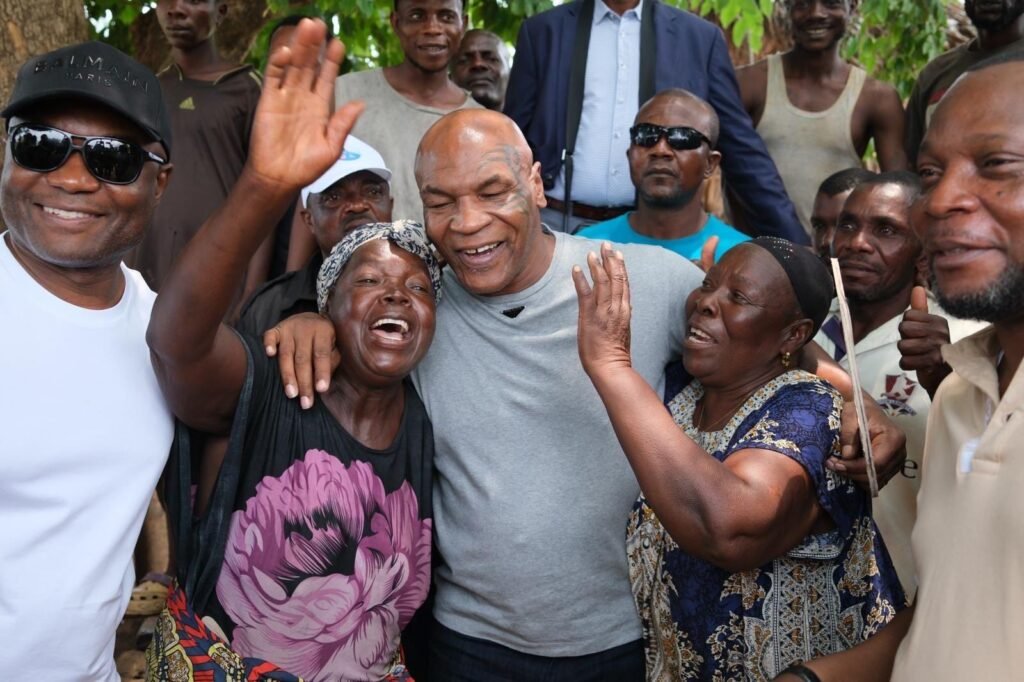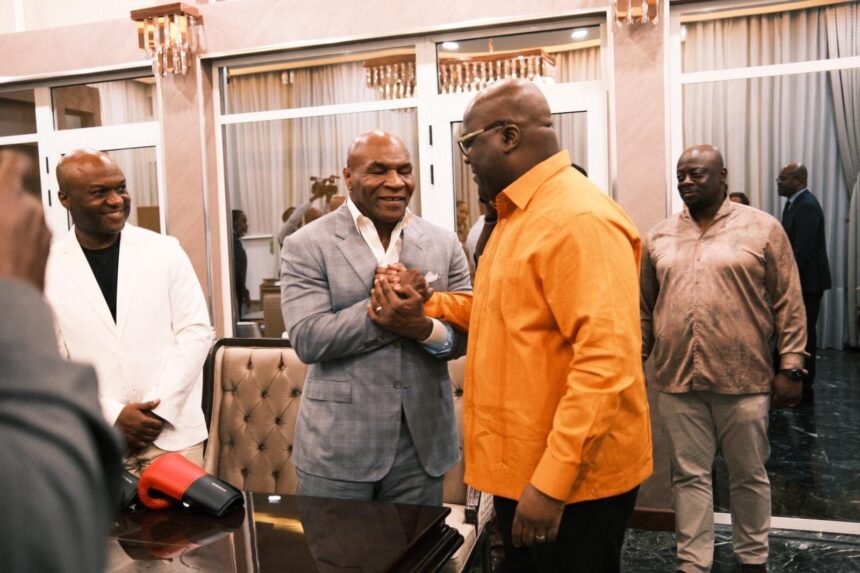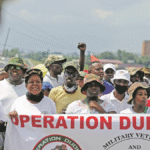KINSHASA, DRC (Elevation News) — Mike Tyson has made an emotional return to the Democratic Republic of Congo (DRC), reconnecting with his ancestral roots in Africa nearly 50 years after the country hosted the legendary “Rumble in the Jungle” boxing match.
The former world heavyweight champion arrived in Kinshasa to a hero’s welcome. Thousands of fans, traditional chiefs, and government officials filled the streets to greet him. Tyson’s visit marks not just a sporting milestone, but a decisive moment of cultural reconnection between Africa and its global diaspora.
In the 1970s, the DRC etched its name into history when Muhammad Ali defeated George Foreman in Kinshasa, a fight that defined an era. Tyson’s return, decades later, rekindles that legacy and reminds the world of Congo’s historic role in global boxing.
Speaking at a welcoming ceremony, Tyson said his visit felt like “a homecoming long overdue.” Dressed in traditional Congolese attire, he thanked the people of Congo for their warmth and hospitality. “I came here to honour my ancestors, to understand their strength, and to celebrate the blood that runs through my veins, the blood of Africa,” he said.
Tyson was honoured with traditional rituals symbolising unity and strength. Local elders blessed him with gifts and welcomed him as a son returning home. He also met with historians and genealogists who traced his family lineage to central Africa, deepening his spiritual connection to the land.

“Coming to Congo is more than a visit, it’s a rebirth,” Tyson said.
The 59-year-old spent time visiting cultural landmarks, engaging with young athletes, and attending community gatherings. The streets of Kinshasa erupted in celebration as dancers, drummers, and fans joined to honour one of boxing’s most iconic figures.
In recent years, Tyson has transformed his life, evolving from a fierce competitor into a spiritual, reflective, and compassionate leader. He now promotes wellness, self-discipline, and mental health awareness through his global platforms. His journey back to Congo reflects that transformation: a man searching not for fame, but for identity and meaning.
Local leaders praised Tyson for reconnecting with his African heritage and for inspiring young people across the continent. “He represents resilience and redemption,” said a Kinshasa community elder. “His story shows that greatness can always come home.”
Tyson’s visit has sparked conversations about heritage tourism and diaspora engagement. Congolese officials said the trip could pave the way for new cultural exchange initiatives between the DRC and African American communities.
According to the DRC Ministry of Culture, discussions are underway to use Tyson’s visit as a springboard for long-term tourism campaigns promoting the country’s historical and cultural heritage.
For millions of Africans and descendants around the world, Tyson’s return symbolises a shared journey, one of reconnection and rediscovery. It reflects a growing movement of African descendants tracing their lineage, reclaiming identity, and rebuilding ties once broken by slavery and colonisation.
As the sun set over Kinshasa, Tyson’s closing words echoed through the cheering crowd:
“I came here to honour my ancestors and to remind the world that Africa is not my past, it is my home.”
For the Democratic Republic of Congo, Tyson’s visit was more than symbolic. It was a story of hope, heritage, and pride, proof that no matter how far one travels, the journey always leads back home.










